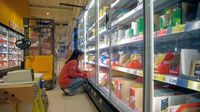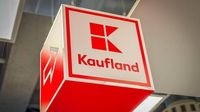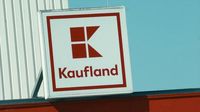In a shocking revelation, an undercover investigation by the team led by Günter Wallraff has exposed severe hygiene violations at Kaufland, one of Germany's largest supermarket chains. After nearly a year of research conducted in 50 stores across twelve federal states, the findings show that over 80 percent of the locations surveyed exhibited serious hygiene deficiencies, raising concerns about food safety in the chain.
The investigation, which aired on RTL on April 3, 2025, at 20:15, revealed alarming practices at various Kaufland stores. In Bad Tölz, undercover reporter Silan reported being instructed to continue selling spoiled food, including moldy cheese. She was told to simply cut off the moldy parts and place the cheese back on display. Furthermore, Silan was directed to repackage expired antipasti from the fresh food counter into plastic containers and relabel them with new expiration dates, potentially misleading customers about the freshness of the products.
In Homburg, the situation was even more distressing. Using night vision cameras, reporters documented 48 instances of mouse movement under a cookie and cake shelf within just six hours. Additionally, reporter Lina found mouse droppings in bread baskets and near other food items. Informants even provided photos showing a dead mouse on a toast package, highlighting the serious pest control issues within the store.
The findings of the report indicate that Kaufland is not only facing issues with spoiled food but also with defective refrigeration systems. Approximately 80 percent of the stores surveyed had problems with their cooling systems, leading to leaking display cases and the growth of mold. In some stores, puddles formed under refrigerated units, and the presence of ice build-up suggested significant temperature fluctuations, which can compromise food safety.
Experts have voiced their concerns regarding these findings. Bernd Stumm, a food inspector, noted, "The mold needs some time before it becomes visible, indicating that cleaning has not been performed regularly." A sample taken from a Bavarian store contained about 3,000 colony-forming units, which is 300 times more than what is permissible according to health standards. Britta Schautz from the Berlin Consumer Center emphasized the risks, stating, "We have mold on the panes and in the refrigerated displays, which can transfer to food products. While plastic packaging may not allow contact, cardboard packaging can become soggy, allowing mold to transfer onto food."
In response to these alarming findings, Kaufland stated, "The freshness and quality of our products are our uncompromising priority, and we do not tolerate deviations. Our employees are regularly trained in these areas, and we have defined processes for the correct handling of food, which are documented and monitored through control systems." The company acknowledged the presence of pest infestations and announced plans to modernize the Homburg store starting in May 2025 to address these issues effectively.
Moreover, Kaufland has replaced management personnel in both the Bad Tölz and Homburg locations as part of their response to the hygiene irregularities reported by the investigation. The company emphasized that the reports do not align with their strict guidelines for food handling and cleanliness. They have also initiated a comprehensive review of how these incidents occurred, with many issues already addressed prior to the airing of the report.
Despite Kaufland's assurances, the investigation raises serious questions about the overall hygiene practices within the chain. With more than 770 stores in Germany and an average size of 4,200 square meters, the company has a significant impact on food safety standards across the country. Kaufland, which is part of the billion-dollar Schwarz Group alongside Lidl, has claimed to prioritize customer safety and product quality.
The ongoing concerns regarding hygiene at Kaufland stores prompt consumers to question the safety of their shopping environments. As the investigation continues to unfold, many are left wondering how widespread these issues might be and what measures will be taken to ensure that customers can shop with confidence.
As part of the coverage, a new episode of the podcast "RTL erleben – der RTL Deutschland Podcast" was released, featuring insights from reporter Alex Römer about the investigation's background and the challenges of investigative journalism.
The full report titled "Mold, Mice, Work Pressure - Undercover at Kaufland" is available on RTL+ for those who wish to delve deeper into the findings and implications of this significant investigation.





